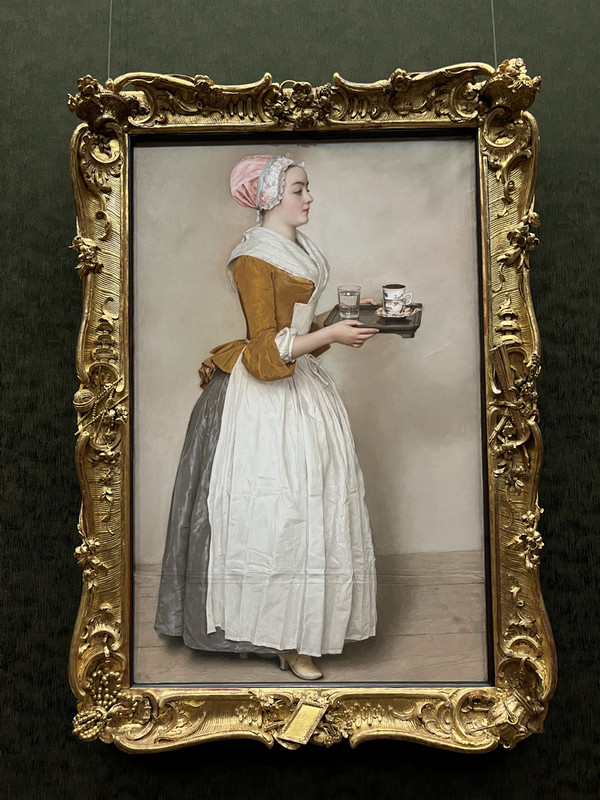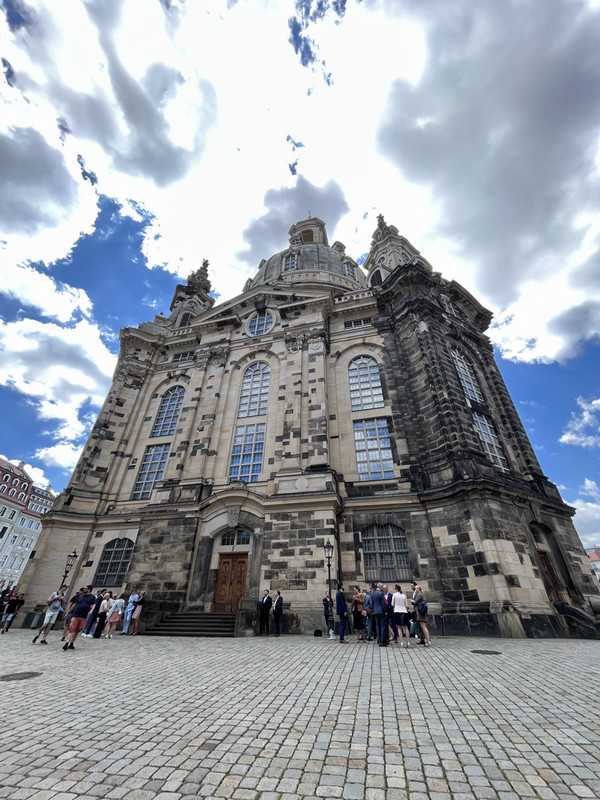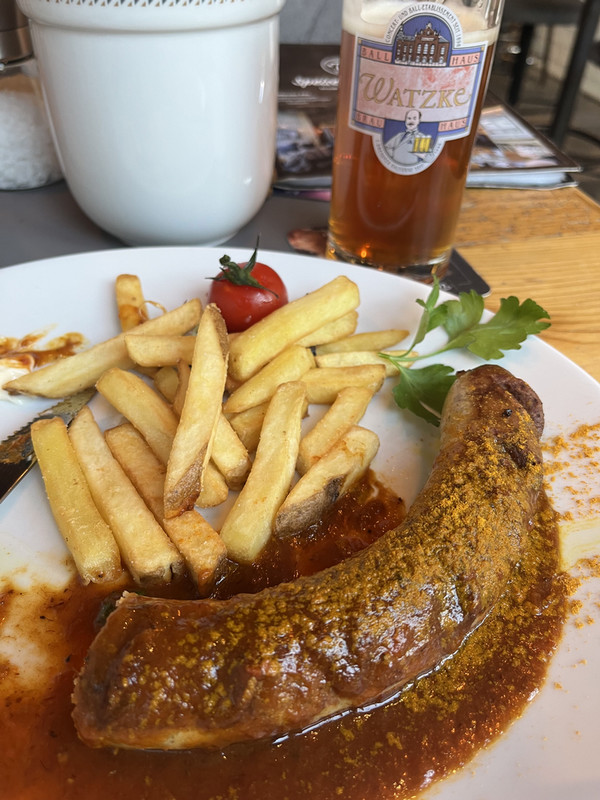Week 5
This week was the big lead-up to CEELI's Annual Meeting and Rule of Law Symposium. I worked on many tasks, such as editing staff biographies and making background slides for the Symposium. I also started a new research project on the use of electronic evidence in African countries.
On Thursday afternoon, CEELI gathered the staff and board members for an informal meeting. It was great to meet those who arrived from all over the U.S. and Canada. That night, the welcome dinner was at the nearby restaurant in the park. The weather was beautiful, and it was great to socialize with even more members, guests, and members of the CEELI team.
Friday was an early start to welcome board members, panelists, and guests for the Rule of Law Symposium. To begin the program, the U.S. Ambassador to the Czech Republic, Bijan Sabet, made the opening remarks. The keynote speaker was Adam Bodnar, the Minister of Justice of Poland. He spoke about how Poland has worked hard to restore the rule of law after years of backsliding. He also emphasized the importance of individual integrity in supporting the rule of law.
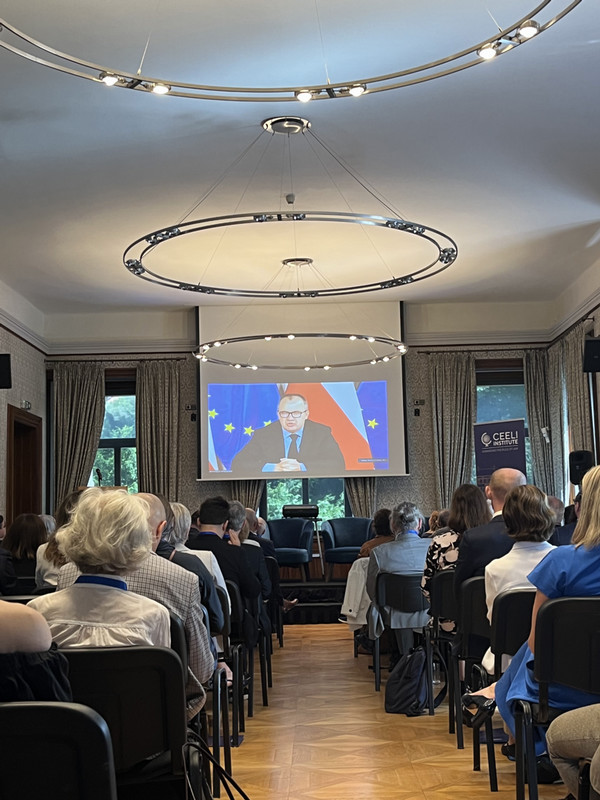
The three panels covered judicial independence, countering sanctions evasion, and the role of whistleblowers in promoting the rule of law. The first panel was moderated by a U.S. federal judge, and consisted of judges from Poland, India, and South Africa. It was fascinating to hear them speak about their challenges, such as a lack of resources, independence, and transparency in the nomination process, while also highlighting their successes.
The second panel focused on sanctions against Russia because of the war in Ukraine. Representatives of the U.S. Department of Justice task force "Kleptocapture" and the European Commission "Seize and Freeze" task force discussed using sanctions to freeze the assets of Russian oligarchs and control exports of technology and sensitive materials. Sanctions on their own can't end the war, but as the DOJ representative emphasized, the goal is to impose high, unsustainable costs and make life difficult. The speakers also spoke about how Russia and other countries continuously invent new ways to evade sanctions, so government agencies must also adapt their strategies.
The third panel discussed whistleblowers and the importance of protection across jurisdictions so individuals are comfortable coming forward. Having a network of support from civil society organizations, the government, and even internal channels within the company or organization is important. The president of a non-profit that supports whistleblowers, a journalist who helped share a whistleblower's story, and a representative from Slovakia's independent whistleblower office shared their input about effective ways to support whistleblowers.
The day concluded with a reception at the Czernin Palace, the Czech Ministry of Foreign Affairs offices. Jiri Kozak, the Deputy Minister, welcomed everyone. It was a great opportunity to relax after a week of busy preparations!
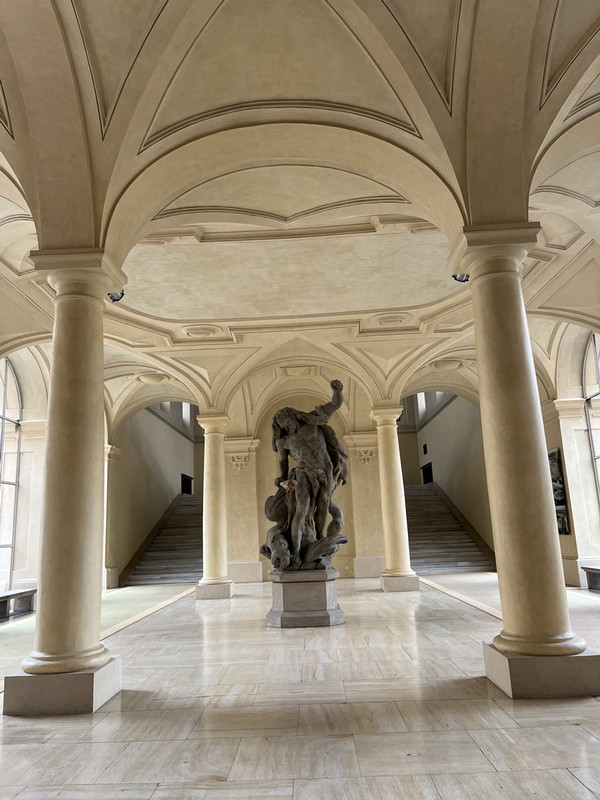
On Saturday, I went to Dresden, Germany, for the day. I went to the Old Masters Picture Gallery (Gemaldegalerie Alte Meister) at Zwinger Palace and the New Masters Gallery at the Albertinum. Sitting and reading along Bruhl's Terrace above the river Elbe was beautiful. I also had a delicious currywurst and fries for dinner before heading back home to Prague.
